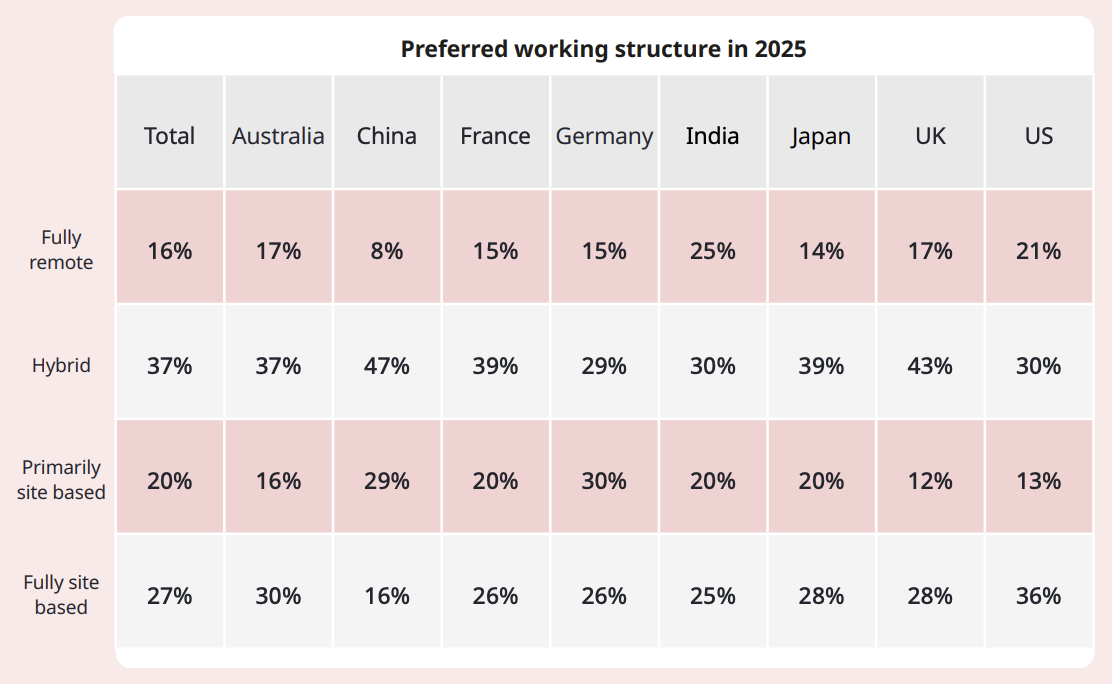
Nearly half of global employees prefer site-based work in 2025

Onsite work has emerged as a popular choice for employees who started working during or since the pandemic, according to a new report.
Findings from BSI's 2025 Global Workforce Entrants Study polled 4,700 workers who started working during or since the pandemic to determine how this experience shaped their circumstances.
The pandemic forced many workplaces around the world to implement remote work as lockdowns and restrictions prevented employees from leaving their homes.
According to the report, 47% of the employees globally who started work during the pandemic now prefer onsite work, including primarily site-based work (20%) and fully-site-based (27%) jobs.
More than a third of the respondents said they still prefer hybrid work (37%), while only 16% said they prefer a fully remote setup.

Despite this, the report found that full-time office work is still not the first choice for many employees. In fact, more than half of remote (58%) and hybrid (51%) employees said they would find a new job if their company implemented a full-office return.
Another 65% of employees also said jobs requiring a full on-site presence should be paid more, while 68% said employers should offer other flexibilities, such as condensed or part-time schedules.
Susan Taylor Martin, Chief Executive of BSI, said their findings provide a strong counterpoint to arguments that younger workers are part of the "lazy generation" following reports that they are less dedicated to their work and prefer work-life balance.
"We have found a cohort thinking very carefully about what they want from life and work and understand the trade-offs involved," Martin said in a statement.
"Organisations thinking about how to attract, retain, and get the most from their talent will surely benefit from starting from a place of understanding and empathy about the circumstances that shaped their newest starters and continue to inform what they want from their careers now."
According to the report, employees' desire to be onsite, even if not full-time, underscores the global impact of isolation and anxiety brought about by remote work.
More than a third (37%) of the respondents said their mental health was negatively affected by remote work during the pandemic, while 56% said this was improved by a hybrid work arrangement.
"Hybrid working is not for everyone. But for the generation that entered the workforce during the pandemic, the experience has been largely positive," said Mark Morrin, Principal Research Consultant, ResPublica, in a statement.
"Hybrid workers are more likely to have been promoted and more likely to have had wage increases compared to their site-based peers."
However, Morrin said there are some indications that hybrid roles can still reinforce a sense of isolation or lack of workplace confidence, as around 25% of employees in remote or hybrid work say that social anxiety would influence their decision to take an onsite-based role.
"This represents both opportunity and challenges for employers and policymakers in shaping the career landscape for young people and new job entrants," he said.